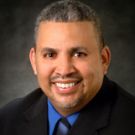History shows us that tension will eventually boil over and the oppressed will fight back. It isn’t a matter of if but when it will happen. Whether enslaved by Pharaoh, under repressive family or work environments, or in impoverished conditions, at some point, the human spirit will rise demanding dignity, equality, and respect. In Egypt, the Jews cried out, but Pharaoh didn’t listen; God did (Exodus 3:7). Across the globe, people are demanding social justice and protesting perceived governmental actions or inactions. These protests have mostly been peaceful and nonviolent, but some have turned into looting, confrontations with law enforcement, and riots. These confrontations point to deeper unresolved issues society has failed to address – as psychologist Virginia Satir observed “the presenting issue itself is seldom the real problem.”
We may quickly condemn the riots and protests while neglecting the underlying conditions. Dr. Martin Luther King, Jr. noted “certain conditions continue to exist in our society, which must be condemned as vigorously as we condemn riots. But in the final analysis, a riot is the language of the unheard.”
Poverty, lack of resources, and other social conditions are often driven by power imbalances that fuel the sense of disenfranchisement. Today, the unheard aren’t just speaking; they’re moving through our streets and highways and into our capitals. We can feel the stress that fuels nervous energy and despair daily. We know something must give; something must be done, but what, is unclear. We just know we can’t take it anymore, so we cry out demanding change. If there was ever a time when we needed leaders that lead like Jesus today is it. We need leaders that help us look beyond our own needs and interests.
Like Jesus, Rev. Martin Luther King Jr., Rev. Joseph Lowery, Rev. Billy Graham, C.T. Vivian, and Congressmen John McCain and John Lewis spoke against injustice, elicited calm, articulated a moral imperative, provided a sense of optimism, and helped us envision a better place. They captured our attention and transcended our differences not because of their credentials but because they spoke about moral choices, right and wrong. They painted pictures of the challenges and possibilities laying ahead of us, striking a chord in our hearts, garnering our attention, and calling us to action. When they spoke about injustice, they relied not on rhetoric or their political or religious clout but a fundamental truth found in Proverbs 24:23 (MSG):
“It’s wrong, very wrong, to go along with injustice.
As leaders and Christians, we are called to speak out and act against injustice. But we are reminded that we have an obligation, as Titus 3:1-2 (CEV) says, to:
“Remind your people to obey the rulers and authorities and not to be rebellious. They must always be ready to do something helpful and not say cruel things or argue. They should be gentle and kind to everyone.”
I must confess this isn’t how we handled things when I was growing up. “A tooth for a tooth” (Leviticus 24:20, CEV) was our motto. If you were wronged or disrespected, you “handled” it. But conflict rarely got resolved this way, often, it escalated into “gang” fights. Who could forget the “Sharks” and “Jets” (Westside Story, 1961)?
“Jesus asks us to give up revenge altogether. He asks us not to focus on an eye for an eye and a tooth for a tooth, but instead calls us to respond in a different way, one that requires thought and creativity (2018).” Addressing injustice also requires courage and integrity. It is too easy to believe that we are unaffected; after all, everything is fine here. Leaders don’t just speak against injustice, they act.
Who could forget how Senator John McCain handled the town hall in Minnesota? During the 2008 Presidential campaign, attendees at a town hall began attacking and making racist comments against his political rival, Senator Barack Obama. Senator McCain grabbed the microphone and defended Obama. McCain’s direct action may not have stopped the racist attitude, but it did stop the racist comments. McCain understood that indifference and inaction were not an option. Similarly, we must take an active approach to remedy injustice and resolving conflict involving:
- Recognizing a problem exists. Beginning with ourselves, we should seek to see what or how we may have contributed to the problem. This is often difficult because it is easier to see the fault in others than admit our own faults (Matthew 7:5, NLV).
- Look beyond the presenting problem to the deeper issues. While possible, conflict is seldom the result of one incident but a pattern of acts or behaviors. Identifying these can help create changes.
- Ask for and identify possible solutions; then agree to end the conflict and implement the solutions that were agreed to.
- Ensure that the actions taken were sufficient to resolve the issue and tend to the relationship being repaired.
Challenge: When we see injustice, we can’t pretend that it doesn’t exist, nor can we be inactive believing that we are unaffected. If there is an injustice or conflict that needs to be repaired, take the first step in resolving it. Remember that the most effective weapons against injustice aren’t forms of revenge but love and compassion. Paul reminds us (Acts 10:34, ERV):
“I really understand now that God does not consider some people to be better than others.”
Learn to live, love, and lead like Jesus by attending an Encounter workshop.










